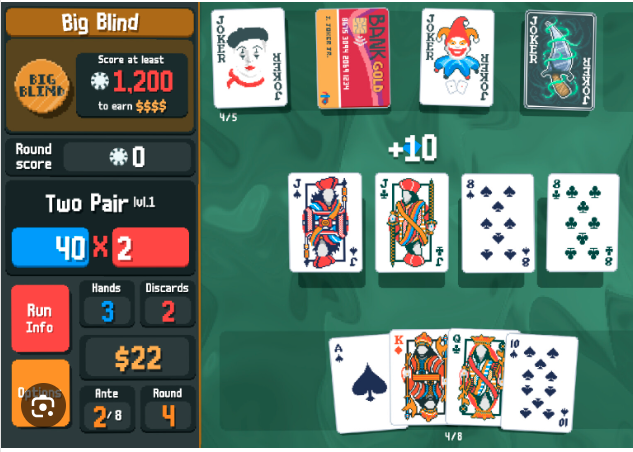
Brace yourself, it’s more poker stuff today. I recently had reason to ruminate on the game, so I’ve got a few more things I want to discuss.
Apologies if you find your way here to explore the full sumptuous labyrinth of my gambling knowledge, but poker is where I’m at my expertiest, so it is in that ornate antechamber that we shall linger a little longer.
We’re leaving behind the muck of game integrity for now though (I have plenty to say about bots in the not-too-distant future), and onto something lighter: Innovation.
Maybe I’m just conditioned for optimism by the unconvincing arrival of spring, but I’m seeing green shoots of creativity. I’ve argued before that poker as a wider product category still has plenty of life, but I’ve rarely seen signs that anyone is pursuing the opportunities.
I see luscious, fertile, virgin fields all around, but the incumbent poker giants have been content to toil in the gravelly back yard of jackpots and speed games. That’s not so much novelty as it is just tweaking a couple of dials.
In general, knob-twiddling isn’t without value. In those particular cases though, it does nothing to expand the game. Worse still, it’s lazy and a bit dangerous.
Bigger jackpots mean more losers, because those prizes aren’t self-funding. More losers means more loss-chasing, and the big prize money means there’s always a glimmer of hope to get out of a hole.
It’s like they’re trying to engineer a perfect downward spiral for the vulnerable.
Faster games are bad because it’s not healthy for dopamine hits to come too thick and fast. It conditions the brain to crave more, and that’s a contributing factor in how addictions start.
But thankfully, not everyone is thinking like that. Today I just want to direct a couple of solemn nods of approval towards folks who are exploring the unploughed meadows of poker innovation.
First off, the solo developer that created Balatro. He goes by a screen name, so I can’t offer personal plaudits, but then he’s already been smothered in cash and praise, so I don’t suppose he needs it from me anyway.
I haven’t played Balatro yet, because I was stupid enough to buy a Chromebook (worst purchase of 2023) and I haven’t owned a console since the N64. I’m not about to break my 25 year run just to play a card game, and it’ll be on mobile soon enough.
I won’t try to explain the game here, but it’s basically a very pokery solo roguelike with lots of interesting jokers and rubbish graphics (see above). There are a bunch of rounds with an element of deck-building in between.
Side note, I hate the word roguelike. It’s gaming-speak for “a game where you have to start again from scratch when you die”, but it doesn’t look like it means that. It doesn’t even have the decency to sound like a noun, so it’s very annoying. Maybe I’m just a basic literal b#tch, but I’d call it a Startover.
It’s sold over a million copies in the month since release, and it’ll win a bunch of awards. Players on Steam have put in nearly 2000 years of combined play to date. That’s close to my time investment in Championship Manager 02/03 at university.
What I really love about Balatro is that it isn’t a gambling game. People are buying it just because they want to play it and have fun.
Imagine that?! Playing a poker variant because it’s genuine entertainment. It should be to the utter embarrassment of the poker world that it is a revolutionary approach.
I suspect the deeper-pocketed industry players are circling to buy the game and slap their branding on it as a marketing exercise. Please don’t. Take all that money and spend it on creating something else original and interesting. Maybe even something that’s fun.
Next up, I want to sing the praises of Kim Lund. Kim stumbled across this blog last year, and by chance we were able to meet up soon after at a pub quiz in Malmo.
Kim has fingers in lots of pies, but the most advanced of which is Hands of Victory. It’s a bit more like traditional poker, but with some creative wrinkles and an engaging narrative (featuring its own IP). Like Balatro, it leans more towards gaming, but it does keep a toe in the gambling camp.
It was so interesting to talk to someone who thinks about games the same way I do. Or at least with the same passion and disregard for dogma.
Most people don’t want to get lost in the weeds of what makes something fun, or what can be done to make it better, but that’s my favourite thing to think about.
Padel tennis (and I suppose pickleball if you’re feeling generous) is awesome, but it wouldn’t exist if someone hadn’t given regular tennis an overdue kick in the cheeks. That’s pretty much what Kim has tried to do with his game.
I don’t know if Cards of Victory will be his big breakthrough, but I’m confident he will have one. I love the inspiration part of game design, but only occasionally bring my ideas to life. More likely I’ll cast them like pearls to swine and pop them in a blog.
Kim is someone who is prepared to do the hard work and make them a reality. We need more of him.
